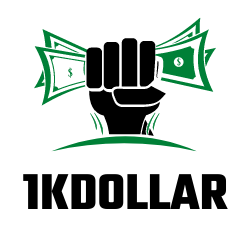국제문자 활용 정보 정리!
국제문자의 뜻 우리는 마케팅할때 여러 방법을 이용하는데 CS가 중요합니다. 많은 기업은 고객과 소통을 하기 위해서 다양한 채널을 이용하는데 그 중, 기본적인 수단으로 손꼽히는 것은 ‘문자’입니다. 국제문자는 시간대에 따로 구애받지 않고,…
유아교육과 자세하게 알아보기
유아교육과 대학교 입학 방법은 아동 및 청소년과 관련된 직업은 꾸준히인기가 있고 앞으로 아이들의 학습과 계속주목받고 있는 만큼 알아보도록 하겠습니다.학과의 특성도 알아보고 전공과목이나 주요진로분야 등을 살펴보겠습니다. 유아교육과는 영유아기 발달 과정을 이해하며…
Unlock the Full Potential of Notion: Proven Tips and Tricks to Master the Tool
In this article, we'll discuss some of the most advanced Notion tips and tricks to guide you to get the most out of this powerful tool.
Tips for Securing a Part-Time Job at Amazon
Learn pro tips on how to secure a part-time job at Amazon. From crafting the resume to acing the interview, these tips will help you.
Discover the Benefits of a Part-Time Job at Amazon
"Learn about the benefits of a part-time job at Amazon including flexible hours, competitive pay, and the opportunity to work.
Unlock Your Financial Potential with Piramal Finance Services
Piramal Finance services helps you achieve financial goals. From financial planning to wealth management, their expert team will guide you.
Uncover the Insider Secrets of Piramal Finance: A Comprehensive Guide
Learn about the history, services, and leadership of Piramal Finance. Discover why it's a trusted financial partner.
Make Money by Taking Paid Surveys and Watching Ads
Want to earn cash from home? Discover the top options for making money by taking paid surveys and watching ads.
Explore eToro’s Features and Benefits for Successful Trading
Learn about the eToro's Features and Benefits, a popular online trading platform that offers social trading, user-friendly interface.
Unlock the Secrets in Understanding Cryptocurrency: A Beginner’s Guide to Digital Currency
Understanding cryptocurrency, including what it is, how it's acquired and used, and the potential advantages and disadvantages.
